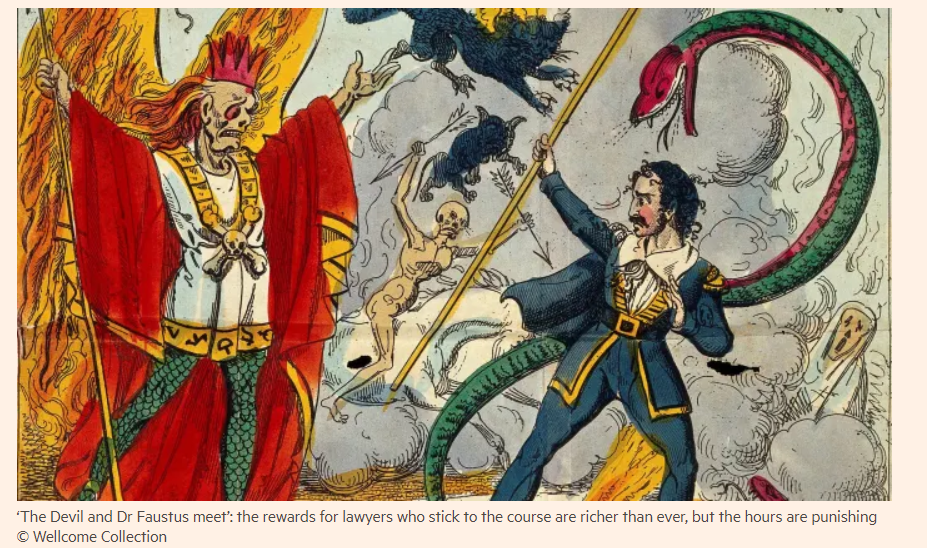In today’s FT, Andrew Hill, their gifted and prolific management essayist, published a column of that name (link works only for FT subscribers) discussing the unheard-of pressures on corporate deal lawyers–partners and associates alike–given the superheated private equity and corporate/strategic frenzy of dealmaking. The news “hook,” but far from the core of the story for Andrew, is inevitably the recent bump-up in associates salaries from $190K to start to $205K.
Andrew is generous enough to mention me in the article:
Bruce MacEwen of Adam Smith Esq, a boutique management consultancy for law firms, likens the bonuses to “combat pay”. As a proportion of revenue produced, or divided by the many hours firms expect new recruits to work, the payments are neither irrational nor particularly obscene, at least by the standards of Wall Street or City professionals.
The title of the article refers to my worry about what may happen as the economic cycle moves on: “This is a Faustian bargain, MacEwen says, and not only because of the punishing hours new lawyers are expected to put in. When deal activity subsides, partners will look to cut fixed costs by ditching high-paid junior staff.”
What’s to be done?
A few modest proposals:
- If burnout is inevitable, sooner or later, for many associates, recognize that the great majority of them will have fascinating, high-powered careers in the next few decades. They are overachieving Type A’s and that won’t change the moment they take your elevator down for the last time. So? So make them love your firm and be loyal alumni for life. (Thank you, McKinsey, for being an exemplar of this.) Teach them business, finance, heck–yoga–to make them think of your firm fondly.
- Consider paying the 4th-6th years (say), the real “platoon lieutenants” running deals, substantially more than the 1st to 3rd years: More of an “S” curve of compensation among associates than today’s steepish linear hill. I would posit this makes sense in terms of economic value-added, client receptivity and understanding, and good old efficiency/productivity. (That our entrancing and endlessly fascinating industry has chosen not to embrace this so far is beyond the scope of today’s column.)
At some point this superheated deal environment will come to an end. Prudence would advise planning for that day sooner rather than later.
At the very least, sooner than your peer firms.



